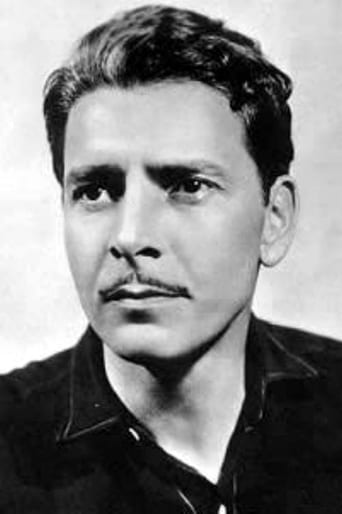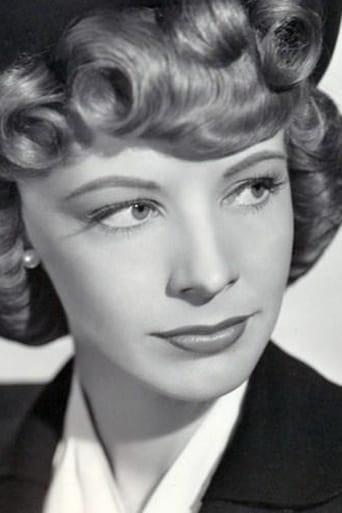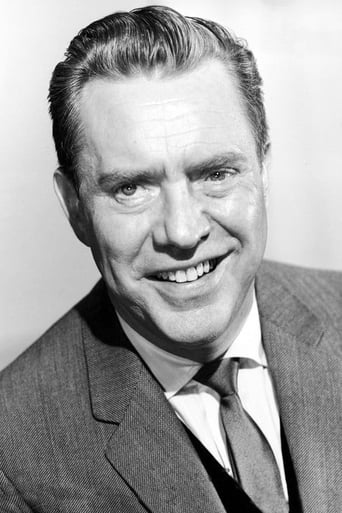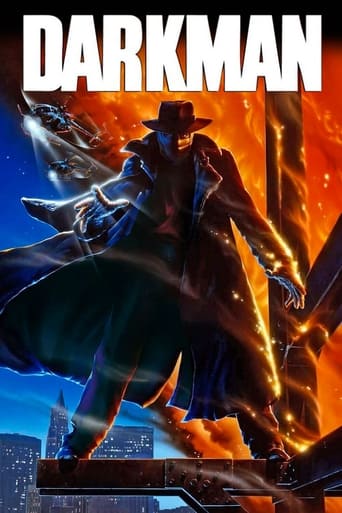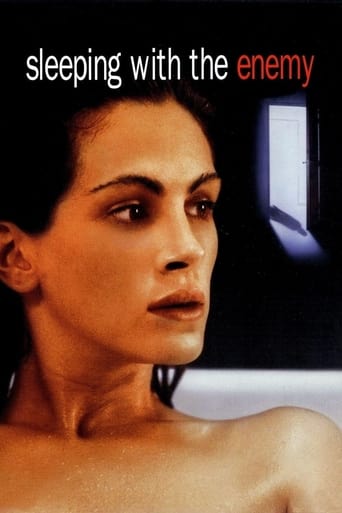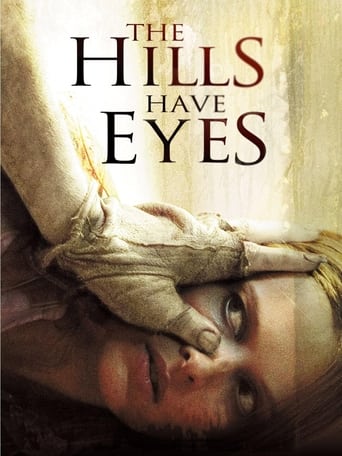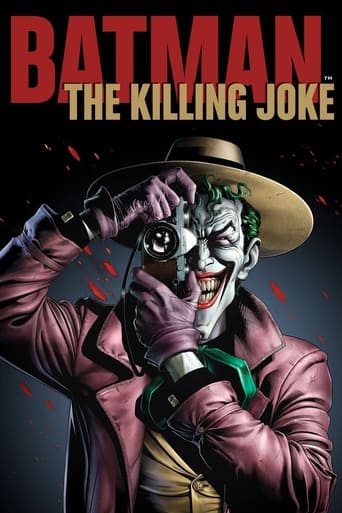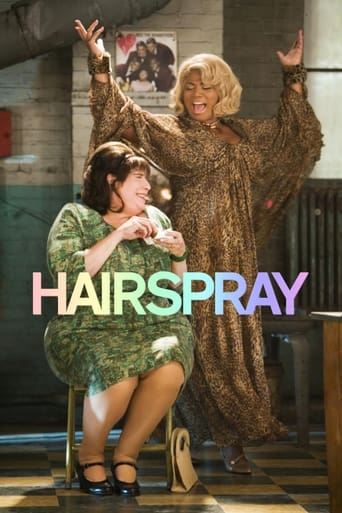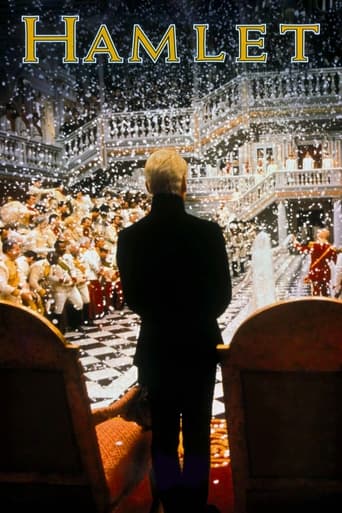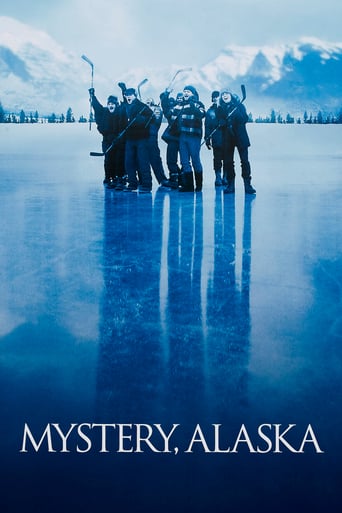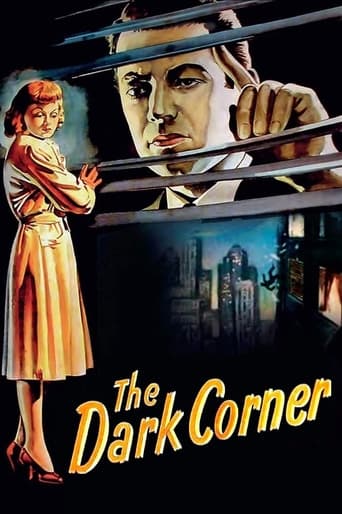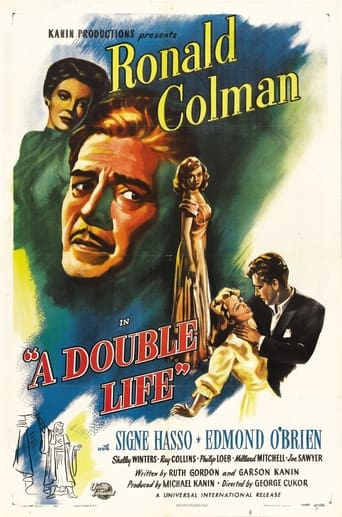
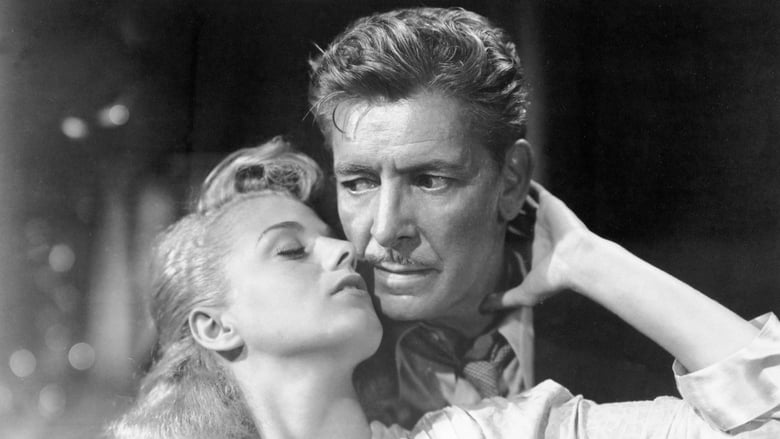
A Double Life (1947)
A Shakespearian actor starring as Othello opposite his wife finds the character's jealous rage taking over his mind off-stage.
Watch Trailer
Cast
Similar titles
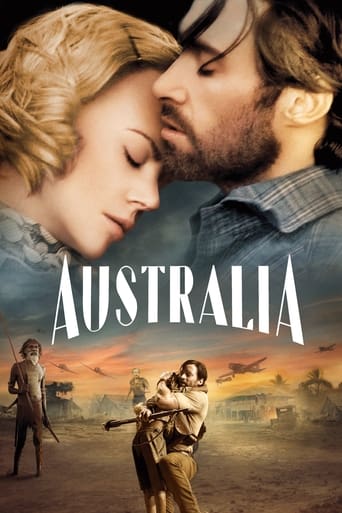
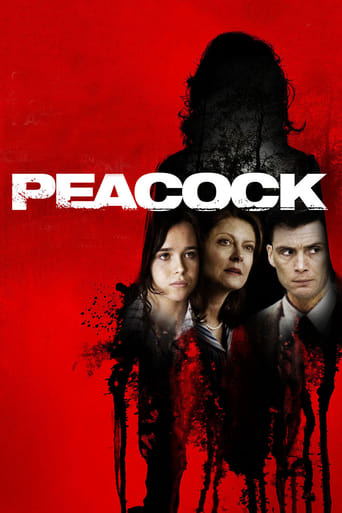
Reviews
It’s not bad or unwatchable but despite the amplitude of the spectacle, the end result is underwhelming.
Great example of an old-fashioned, pure-at-heart escapist event movie that doesn't pretend to be anything that it's not and has boat loads of fun being its own ludicrous self.
While it doesn't offer any answers, it both thrills and makes you think.
It's the kind of movie you'll want to see a second time with someone who hasn't seen it yet, to remember what it was like to watch it for the first time.
says waitress Shelley Winters (Pat) in the funniest line from the film. She's a waitress that has a dalliance with esteemed stage actor Ronald Colman (Anthony). She looks slim in this film but as soon as you recognize her, it's pretty obvious about her fate. The film is about weirdo Colman losing his identity in the roles that he plays and so, of course, his next role is Othello where he gets to murder Desdemona every night. This is pretty obvious stuff.The idea is fine but everything about the film can be anticipated, especially as it is told at such a snail's pace. Boring? Yep. Especially as they throw in huge segments of the actual Shakespearean performance of Othello. I didn't buy a film about the play but this is what you end up watching. You get huge irrelevant sections of the very boring play. The best version of the Othello death scene is done by the cast of Cheers. As this film seems to contain so much footage of the Othello performance, it is aptly relevant to review the Cheers performance as a comparison. Cheers does it way better! There are some nice techniques employed in the film to convey Colman's madness but the story doesn't make any sense at all – from the initial idea of the actor going mad and losing his identity in his role, to the ludicrous relationship he has with ex-wife and fellow actress Signe Hasso (Brita), to the insultingly daft investigation into the killer being caught. The film, unfortunately, just drags even in spite of Whit Bissell turning up in a small role. I recommend you watch the Cheers episode instead of this for a much more realistic and funnier tale of a man being consumed by jealousy and acting out the Othello thing.
A Double Life is directed by George Cukor and written by Ruth Gordon and Garson Kanin. It stars Ronald Colman, Signe Hasso, Edmond O'Brien, Shelley Winters, Ray Collins, Philip Loeb and Millard Mitchell. Music is by Miklos Rózsa and cinematography by Milton Krasner.Renowned actor Anthony John (Colman) becomes unable to differentiate between real life and his stage role of Othello.Colman would win the Academy Award for best actor for his riveting performance here, and it was justifiable reward. Truth is is that as a technical production it's pretty stunning all round. Krasner's chiaroscuro photography provides a cloak of psychological disharmony, Rózsa score (also Academy Award winning) pumps the blood through the story, the screenplay is skillfully literate and Cukor, in his only foray into film noir, has wonderful theatrical experience to draw on to really infuse the picture with meticulous realism.Dualities and the blurring of what's real and what's illusion are the prominent features here, while Colman's transformations between persona's are in turn heartfelt and terrifying. It looks and sounds immense, in fact the opposing contrasts between the stage scenes and the murky discord of the streets are to die for for the film noir visualist. However, there's still a whiff of pretentiousness about the picture that stops it being the whole package, while the play within a play idea certainly makes for an interesting backdrop, yet it renders the pace of the piece as being laborious at times.Are the flaws enough to stop it being a must see film? No, not at all, there's just too much great on both sides of the camera to be ignored. 7/10
A marvellous film which holds your attention due to Ronald Coleman's compelling performance and a narrative which continually keeps intriguing the audience with Coleman playing well renounced actor Anthony John, a man which such great enthusiasm for his craft that it creates a dangerous complex in his personality putting those around him in danger when taking on the role of Othello.There are hints to Anthony's personality shifts from the start of A Double Life. At our first glimpse of Anthony we catch him looking at portraits of previous characters he has played. Turning to face the camera in a medium close up with a seemingly playful expression on his face. We just like the rest of the characters are yet to be aware of what really hides behind his playful expression. The signs of his complexity become more apparent. "You're two men now, urging for control", Anthony's frequent outburst of monologues, his voice shifting in tone showing the battle of his changing personality. The motifs of mirrors in which Anthony looks into as he changes form makes the audience aware of his personality shifts are extremely effective due to Coleman's performance. His way of immediately changing his facial expressions in an alarming manner and his voice range is to perfection.This of course is also benefited by the technical elements of A Double Life. Miklos Rozsa's score with its operatic sounds slowly building higher in volume as Anthony walks around disturbed by what he hears makes for several tremendous scenes. The cinematography of Milton R. Krasner should also get a worthy mention with multiple well placed close ups of Anthony at his most disturbed, showing us in detail the horrific glimpse in his eyes and the haunting expressions which make Anthony monstrous to the audience. However we are not only shown the differences in character of Anthony within his own physical and mental capacity but also with his interactions with others.Most notably with Brita, his actor partner and former companion. She is the catalyst for showcasing his behaviour becoming the source of drama and tragedy in which Signe Hasso is on par with Coleman as a woman who shows undying loyalty to Anthony while also becoming vulnerable around him. In one memorable scene they passionately kiss lying in each other's arms reminiscing the past. When Brita mentions another man having affection for her Anthony suddenly turns aggressive. Raising his voice in anger and changing his posture to that of a predator who quickly attempts to pounce on Brita. Such a scene fills A Double Life with absorbing drama that makes it a quality feature. Brita's weakness creates feelings of unease towards Anthony whilst showing the extent of Anthony's emotional fatigue. Any film which makes us both be wary and sympathetic for the amoral lead is of high standard.Once Anthony's complexity leads to murder the narrative shifts from character – oriented to a gripping investigation. The change continues to make A Double Life brilliant to watch as it brings in the element of tension between Anthony and Bill, a press agent working alongside Anthony who also has feelings for Brita. All these elements conclude in an equally terrific and tragic end as Anthony reaches his demise with suicide making for an emotional finale. When the ending credits appear you realise A Double Life is a film of great calibre.
I saw "A Double Life" under what can only be termed sub-optimal circumstances -- including being obliged to leave for several minutes just before the climax -- but nevertheless I found myself becoming involved with the characters.This is all the more unlikely in that I found the central 'kiss of death' conceit to be frankly absurd; entirely credible as a gimmick for a new theatrical production, but not likely to produce results in real life. Moreover the basic plot-line (fictional murder turns an actor's brain) is both hackneyed (e.g. "The Brighton Strangler") and overwrought: there is mileage to be had in the idea of constant performance undermining one's own sense of identity, and indeed the film makes some interesting points about it, but this particular twist is more usually the territory of the cheap thriller.But instead of, say, the House of Hammer and Peter Cushing (himself with genuine Shakespearian credentials: an equal 'gentleman' of the cinema, he could well have handled the part) we get the likes of George Cukor and Miklos Rosza charged with the task of producing Oscar-fodder from it in full Hollywood panoply -- with the more than able assistance of former matinée idol Ronald Colman playing former matinée idol Anthony John, who enjoys one of those complicated theatrical relationships with Brita, his dearest friend, chief support network, motherly/sisterly protector, sometime lover -- and ex-wife.If the plot of this film leaves it with a heavy burden to carry (even with a generous measure of assistance from the Bard, both on- and off-stage), then it is the characters who carry it through. Colman and Signe Hasso have real chemistry together, and the scenes between Tony and Brita are perhaps the most convincing as well as the most enjoyable in the film: their relationship is almost that of an old married couple (which, of course, they are...) with a tormenting edge of sexual tension -- Brita's housekeeper doesn't turn a hair when her employer's ex-husband shows up (yet again?) unannounced at the breakfast table, but Brita evidently hasn't been allowing him to graduate beyond the sofa, despite their unchanged mutual attraction, while not all the "one-night stands" Tony deplores to his manager would appear to have been theatrical ones... As a depiction of a couple who can't live together and can't live apart it doesn't really need the cheap melodrama trappings, but it is in Miss Hasso's company that Colman comes closest to being able to pull off the plot with psychological conviction.(An earlier reviewer refers to their scene on the stairs -- where we sense for the first time that Tony may be dangerous -- as without doubt the most effective part of Colman's performance, and I would agree. At this point in the film, knowing nothing about it, I felt that it had the potential to develop into a great drama: sadly the later sections caused me to revise my overall verdict downwards.) In the rather thankless role of Bill Friend, the press agent who finds himself the object of Tony's Othello-esque jealousy, Edmond O'Brien also has an outstanding scene with Signe Hasso, as Bill is forced -- in what is almost a throwaway line, beautifully judged -- to admit the truth to the woman for whom he does not allow himself to hope. Little more than a bit-part player for the majority of the picture, Bill suddenly finds himself elevated into a B-movie private detective role by the mechanics of the plot in the final section, and goes through the necessary movements in an adequate by-the-book manner; but this is not really the actor's fault.A young Shelley Winters has a small but memorable part as brassy waitress Pat, who pulls off a blatant pick-up on the middle-aged gent who gets into her proprietor's good books and may therefore be able to offer her 'connections' -- only to take alarm at his habit of reciting poetry to himself and his decidedly unusual behaviour. As Miss Winters makes clear, the two of them are worlds apart; but unfortunately Tony's own two worlds aren't quite separated enough to save both Brita and Pat...Ronald Colman, of course, revels in the verse-speaking, the chance to present an Othello reminiscent of Olivier's later tour-de-force, and the chance to display the actor's craft, all the way from "Anyone for tennis" to heavyweight Shakespearian technique. Little use is made here, alas, of his gift for rueful humour, soon to be demonstrated to such effect in "Champagne for Caesar", but he can simultaneously evoke both wordplay and genuine feeling: (Brita)"Be a good friend and stay a while" -- (Tony) "I'm afraid I can't do either..." His 'mad scene' at the first-night reception is very effective, but even Colman's acting can't really make subsequent plot developments believable. His finale scene, as a man in physical pain but finally freed from his mental agony, is stagy but characteristically underplayed; and while this film would seem to be yet another case of the adage that the way to get an Oscar is to 'play crippled' (and/or the technical challenge of a good/evil twin role), Colman does his best here to make the picture work with the material he is given, aided most notably by the teaming with Signe Hasso, who proves a more than admirable foil.For all the essentially cheap thrills of its plot, "A Double Life" manages to make a memorable effect thanks to adventurous cinematography, evocative grasp of Broadway backstage and a well-drawn cast of involving characters (many of whom have only one or two scenes in which to shine). It's just that the talent involved ended up being hung on what was so basically frail a structure, alas.
